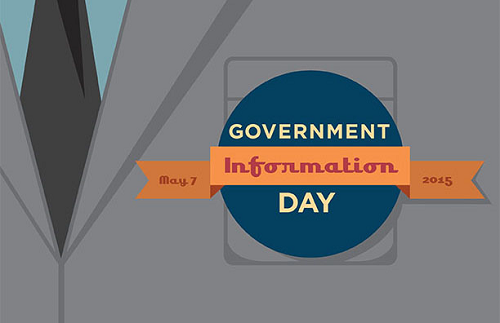May 7th is Government Information Day at the Indiana State Library! The ISL is using this opportunity to highlight what is available and how to use the wealth of information collected and published by the U.S. and state governments, whether you access that information through libraries or directly from government agencies.
One huge area of government information is statistics. The federal government tracks data on numerous civilian concerns – whether you’re studying economics, demographics, criminal justice, or health, there’s something for every need. In fact, there is so much out there, it’s hard to know where to begin. A good place to start is the portal FedStats, which includes links to statistics for over one hundred agencies on the federal, state, and local level.
But there’s more than just statistics. Looking for a job? The government has data that will give you insight on your job prospects and the nature of employment. Trying to secure additional student loans or grants? There are resources to help you find those benefits. USA.gov acts as a portal to these types of data, broken down by type of need rather than name of agency.
For databases, a source like Congressional Quarterly Researcher is a great tool for in-depth, unbiased overviews of the major issues of the day. If you’re looking for law, LexisNexis has case law and state and federal codes. History? Try American Memory from the Library of Congress. U.S. foreign policy? Try the Digital National Security Archive. Congressional documents? Try the Government Publishing Office.tunity to interact with government professional as well as their peers. “We are opening up the line of communication. While this day is geared towards librarians, it is a unique opportunity for the public to come in and talk to these professionals as well.” GID15 is a free event for anyone who wishes to attend. Librarians can earn up to six Library Education Units (LEUs) towards their certification. Go to http://ow.ly/JzLTc for FREE registration
And remember, not everything is online. Especially for older data, knowing who to contact can be vital for finding the right government information. Often, online statistics don’t go back more than a few decades, and this is especially true at the state and local level. That’s not to say that the data doesn’t exist – just that it hasn’t been digitized and put online. So for state data, a call or email to the Indiana State Archives (arc@icpr.in.gov) can get you on the right track. Want information from a Census after 1940? Try a federal depository library like IU Bloomington. When looking for offline information, though, be sure to give them a few days to collect the data and send it back to you!
And if you need any help, ask us at iueref@iue.edu!


